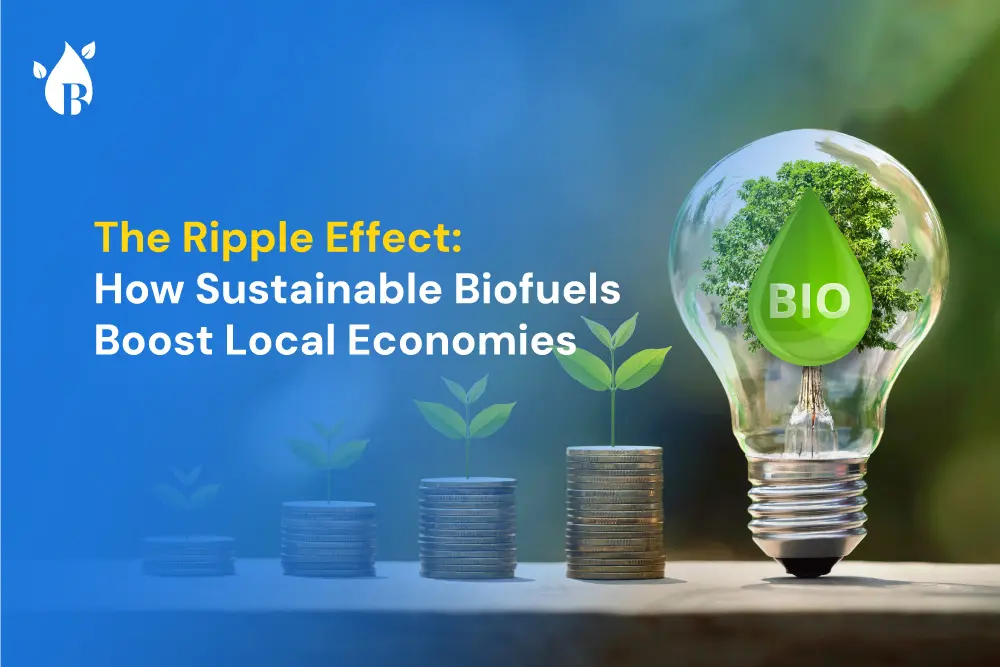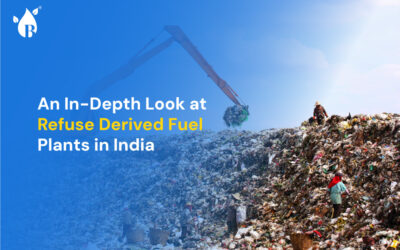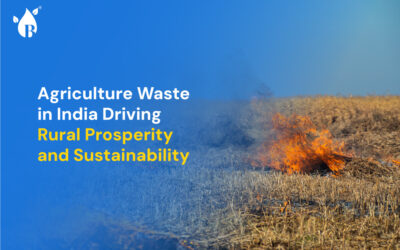
Don’t miss out on insights into the synergy between sustainable biofuels and local economic growth. See how a comprehensive exploration of the ripple effect that is shaping the future of energy and communities.
Mahatma Gandhi once said, “The soul of India lives in its villages,” emphasizing the importance of self-sufficient rural communities. Today, rural India is not just a traditional landscape but a dynamic market, evolving with time and progressive minds. In the pursuit of self-sufficiency, the concept of sustainable biofuels has found its roots in villages, contributing to both economic growth and environmental sustainability. This blog aims to delve into the transformative impact of sustainable biofuels on local economies.
Roots in Tradition
In the heart of rural India, biofuels have quietly been a part of daily life for generations. From using firewood for cooking to harnessing biogas from animal dung, traditional practices laid the foundation for sustainable energy solutions. However, with advancements in technology, there’s an opportunity to leverage these age-old practices for larger, more impactful purposes. Agricultural residues, often burnt as waste, can now be utilized as fuel for industries, playing a crucial role in sustainable energy production.
Government Initiatives and Targets
The Indian government aims to reduce the country’s carbon footprint by 30-35% by 2030. The strategic roadmap includes increasing domestic production, adopting biofuels and renewables, implementing energy efficiency norms, improving refinery processes, and achieving demand substitution. Biofuels play a pivotal role, with the government proposing a target of 20% ethanol blending in petrol and 5% biodiesel blending in diesel by 2030. Various initiatives have been introduced to boost indigenous biofuel production.
The success of sustainable biofuels lies in their ability to address two critical factors: feedstock availability and production costs. By efficiently utilizing biomass waste, including agricultural residues, and implementing cost-effective production methods, biofuels can become sustainable, commercially viable alternatives.
How Sustainable Biofuels Become Catalysts for Transformation
1.Green Energy for Economic Growth:
Sustainable biofuels, derived from organic materials such as crops and waste, offer a cleaner alternative to traditional fossil fuels. As local communities embrace these green energy sources, they contribute to a reduction in carbon emissions, thereby fostering a healthier environment. In turn, this commitment to sustainability attracts environmentally conscious consumers and businesses, creating a positive cycle that stimulates economic growth.
2. Agricultural Opportunities:
The production of biofuels often relies on agricultural inputs, opening up new avenues for local farmers. Growing crops specifically for biofuel production not only diversifies their income streams but also contributes to the overall economic vitality of rural areas. This agricultural shift can lead to job creation and increased demand for related services, fostering a more resilient local economy.
3. Job Creation in Biofuel Industries:
The biofuel industry itself becomes a source of employment. From the cultivation of raw materials to the refining process and distribution, a sustainable biofuel supply chain creates job opportunities at various levels. This job creation is a vital component of the ripple effect, as it not only provides employment but also strengthens the social fabric of the community.
“By efficiently utilizing biomass waste, including agricultural residues, and implementing cost-effective production methods, biofuels can become sustainable, commercially viable alternatives.”
4. Investment in Research and Development:
The pursuit of sustainable biofuels encourages investment in research and development. Local universities and research institutions may collaborate with biofuel producers, leading to innovation and technological advancements. This, in turn, attracts funding and expertise, contributing to the knowledge economy of the region.
5. Infrastructure Development:
As the demand for sustainable biofuels grows, local infrastructure is likely to be developed or upgraded. This includes biofuel production facilities, storage units, and distribution networks. Such investments not only enhance the efficiency of biofuel production but also create opportunities for local contractors and businesses.
6. Reduced Dependency on Foreign Oil:
Communities that embrace sustainable biofuels contribute to national energy security by reducing dependence on foreign oil. This shift in energy sourcing has broader economic implications, as it stabilizes energy prices and shields local economies from the volatility of the global oil market.
Final Words
The promotion of biofuels in various Indian states as a part of their rural development strategies signifies a proactive approach towards sustainable growth. Long before the formulation of India’s national policy on biofuels, several states recognized the potential of bioenergy to generate employment and produce local fuel from existing wastelands. The flexibility granted by the government to identify and implement local development projects, with a particular focus on cultivating biofuel crops, not only contributes to energy security but also fosters employment opportunities, reinforcing the notion that sustainable biofuels can be powerful catalysts for positive change in local economies.
Furthermore, Government officials should clearly commit to reducing uncertainty and building investor confidence by simplifying permit procedures and shortening setup and manufacturing lead times. Countries can encourage sustainable and ethical sourcing by introducing policies, similar to India’s Minimum Support Price (MSP) for oilseeds. On a global scale, there is a growing necessity for a collaborative framework such as the Global Biofuel Alliance(GBA) should be structured, to facilitate dialogue and policy coordination among nations.
As India continues to stride towards a greener and economically vibrant future, the strategic integration of biofuels at the grassroots level will showcase a commitment to both environmental sustainability and inclusive rural development.



